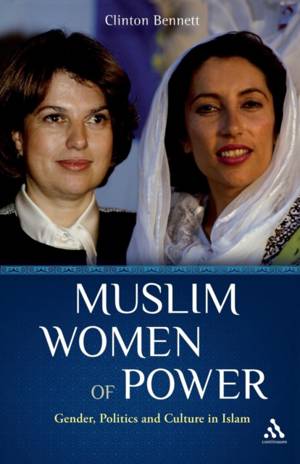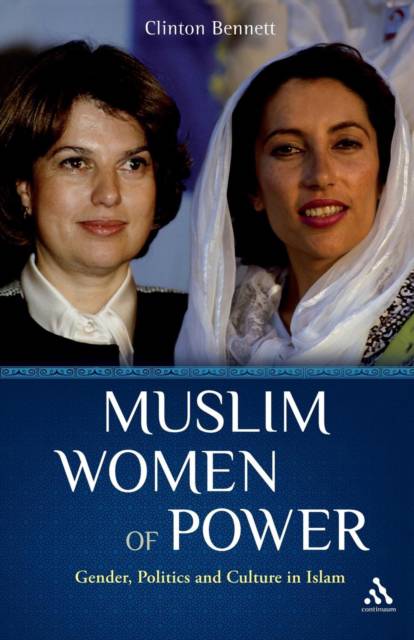
Bedankt voor het vertrouwen het afgelopen jaar! Om jou te bedanken bieden we GRATIS verzending (in België) aan op alles gedurende de hele maand januari.
- Afhalen na 1 uur in een winkel met voorraad
- In januari gratis thuislevering in België
- Ruim aanbod met 7 miljoen producten
Bedankt voor het vertrouwen het afgelopen jaar! Om jou te bedanken bieden we GRATIS verzending (in België) aan op alles gedurende de hele maand januari.
- Afhalen na 1 uur in een winkel met voorraad
- In januari gratis thuislevering in België
- Ruim aanbod met 7 miljoen producten
Zoeken
€ 88,45
+ 176 punten
Uitvoering
Omschrijving
Five women have served as leaders of Muslim countries, namely Megawati Sukarnoputri (Vice President of Indonesia, 1991-2001 and President 2002-4), Benazir Bhutto (PM of Pakistan, 1988-90 and 1993-6), Sheikh Hasina (PM of Bangladesh, 1996-2001), Khaleda Zia (PM of Bangladesh, 1991-5 and 2001-6) and Tansu Çiller (PM of Turkey, 1993-6). This is an extraordinary record and somewhat of a challenge to the widespread perception that Muslim women are oppressed.
Four of the women belonged to political families by birth or marriage, raising interesting questions about the extent to which this played a role alongside their skills and personal qualities in their rise to power. To what degree did culture rather than Islam aid and abet their roles, or indeed is it sustainable to distinguish Islam from culture.Â
This study of the role of these five powerful Muslim women uses their life and work to explore relevant issues, such as the role of culture, gender in Islam and the nature of the Islamic state.
Four of the women belonged to political families by birth or marriage, raising interesting questions about the extent to which this played a role alongside their skills and personal qualities in their rise to power. To what degree did culture rather than Islam aid and abet their roles, or indeed is it sustainable to distinguish Islam from culture.Â
This study of the role of these five powerful Muslim women uses their life and work to explore relevant issues, such as the role of culture, gender in Islam and the nature of the Islamic state.
Specificaties
Betrokkenen
- Auteur(s):
- Uitgeverij:
Inhoud
- Aantal bladzijden:
- 256
- Taal:
- Engels
Eigenschappen
- Productcode (EAN):
- 9780826400871
- Verschijningsdatum:
- 30/12/2010
- Uitvoering:
- Paperback
- Formaat:
- Trade paperback (VS)
- Afmetingen:
- 137 mm x 213 mm
- Gewicht:
- 294 g

Alleen bij Standaard Boekhandel
+ 176 punten op je klantenkaart van Standaard Boekhandel
Beoordelingen
We publiceren alleen reviews die voldoen aan de voorwaarden voor reviews. Bekijk onze voorwaarden voor reviews.









